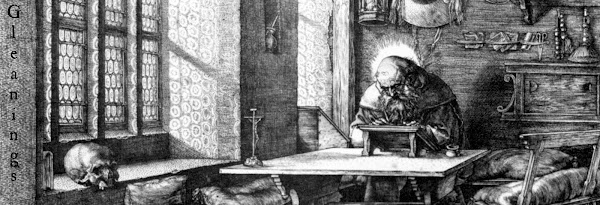In the Light of Socrates and Adeimantus. — Come, then, how does tyranny come into being? It is fairly clear that it evolves from democracy.
It is.
And doesn’t it evolve from democracy in much the same way that democracy does from oligarchy?
What way is that?
The good that oligarchy puts before itself and because of which it is established is wealth, isn’t it?
Yes.
And its insatiable desire for wealth and its neglect of other things for the sake of money-making is what destroyed it, isn’t it?
That’s true.
And isn’t democracy’s insatiable desire for what it defines as the good also what destroys it?
What do you think it defines as the good?
Freedom: Surely you’d hear a democratic city say that this is the finest thing it has, so that as a result it is the only city worth living in for someone who is by nature free.
Yes, you often hear that.
Then, as I was about to say, doesn’t the insatiable desire for freedom and the neglect of other things change this constitution and put it in need of a dictatorship?
In what way?
I suppose that, when a democratic city, athirst for freedom, happens to get bad cupbearers for its leaders, so that it gets drunk by drinking more than it should of the unmixed wine of freedom, then, unless the rulers are very pliable and provide plenty of that freedom, they are punished by the city and accused of being accursed oligarchs.
Yes, that is what it does.
It insults those who obey the rulers as willing slaves and good-for-nothings and praises and honors, both in public and in private, rulers who behave like subjects and subjects who behave like rulers. And isn’t it inevitable that freedom should go to all lengths in such a city?
Of course.
It makes its way into private households and in the end breeds anarchy even among the animals.
What do you mean?
I mean that a father accustoms himself to behave like a child and fear his sons, while the son behaves like a father, feeling neither shame nor fear in front of his parents, in order to be free. A resident alien or a foreign visitor is made equal to a citizen, and he is their equal.
Yes, that is what happens.
It does. And so do other little things of the same sort. A teacher in such a community is afraid of his students and flatters them, while the students despise their teachers or tutors. And, in general, the young imitate their elders and compete with them in word and deed, while the old stoop to the level of the young and are full of play and pleasantry, imitating the young for fear of appearing disagreeable and authoritarian.
Absolutely.
[. . .]
To sum up: Do you notice how all these things together make the citizens’ souls so sensitive that, if anyone even puts upon himself the least degree of slavery, they become angry and cannot endure it. And in the end, as you know, they take no notice of the laws, whether written or unwritten, in order to avoid having any master at all.
I certainly do.
This, then, is the fine and impetuous origin from which tyranny seems to me to evolve.
It is certainly impetuous. But what comes next?
The same disease that developed in oligarchy and destroyed it also develops here, but it is more widespread and virulent because of the general permissiveness, and it eventually enslaves democracy. In fact, excessive action in one direction usually sets up a reaction in the opposite direction. This happens in seasons, in plants, in bodies, and, last but not least, in constitutions.
That’s to be expected.
Extreme freedom can’t be expected to lead to anything but a change to extreme slavery, whether for the private individual or for a city.
No, it can’t.
Then I don’t suppose that tyranny evolves from any constitution other than democracy—the most severe and cruel slavery from the utmost freedom.
Yes, that’s reasonable.
But I don’t think that was your question. You asked what was the disease that developed in oligarchy and also in democracy, enslaving it.
That’s true.
And what I had in mind as an answer was that class of idle and extravagent men, whose bravest members are leaders and the more cowardly ones followers. We compared them to stinged and stingless drones, respectively.
That’s right.
Now, these two groups cause problems in any constitution, just as phlegm and bile do in the body. And it’s against them that the good doctor and lawgiver of a city must take advance precautions, first, to prevent their presence and, second, to cut them out of the hive as quickly as possible, cells and all, if they should happen to be present.
Yes, by god, he must cut them out altogether.
Plato, Republic, Bk.VIII:562-564c, tr. G.M.A. Grube & C.D.C. Reeve, in Plato: Complete Works (Indianapolis: Hackett Publishing Co., 1997), p.1172-4; original emphasis.
